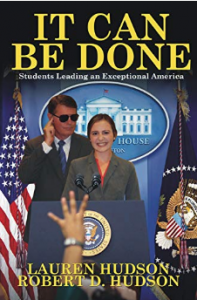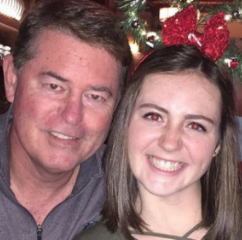Letters for families based on the book “It Can Be Done” @studentsleadusa
We write at a time when some people describe America as being more deeply divided than ever. Through this series of letters, we intend to demonstrate that most Americans have substantial common ground, including shared approaches and values in many parts of life.
We begin with basics. Consider the final phrase of the Pledge of Allegiance, six words about which most people agree. The Pledge closes “with liberty and justice for all,” a statement of common ground. In this letter, we comment on the “liberty” part of the Pledge’s last phrase, and we will comment on the “justice” part in our next letter. We submit to you that liberty and justice often fit together beautifully in America, helping to set the stage for an exceptional country.
In this letter, we comment on the “liberty” part of the Pledge’s last phrase, and we will comment on the “justice” part in our next letter. We submit to you that liberty and justice often fit together beautifully in America, helping to set the stage for an exceptional country.
Liberty means being able to live free from unreasonable government intrusion or control. The American liberties described below have helped us experience successes for nearly 250 years.
Work and Business – The government cannot force us into a job we don’t want. Generally, the government cannot stop us from going into business for ourselves.
Family – The government cannot stop us from getting married, limit us in having children, or order us to have a certain type of family.
Education – We have the right to 12 or more years of free education. Across the country, we generally have the freedom to choose our education, including attending college or seeking other advanced training.
Personal Choices – We generally get to choose what we buy, where we shop and eat, our entertainment, how hard we work, and how we use our leisure time, subject to limits of our personal resources.
Property Ownership – We can own property, and it cannot be taken away from us by the government without cause and without paying for it.
Religion – We can practice whatever religion we choose or practice no religion at all. The government cannot force a religion on us, adopt a religion for us, or (at least usually) force us to do things against our religion.
Speech and Press – We can speak and write freely, which enables us to develop, share, hear, and read about ideas. We can use these freedoms to try to unite or divide people.
Petition – We can criticize and petition government officials without fear of government punishment or censorship.
Association – We can gather, associate with one another, develop relationships, join groups, and work together.
Bearing Arms – We can own firearms, which fortifies the right to defend ourselves from public and private threats of violence.
Privacy – The government cannot conduct unreasonable searches or seizures of us or our property. We have liberty rights of privacy.
Travel – The government generally cannot restrict where we travel or live.
Voting – We have the right to vote and choose our government representatives.
Anti-Discrimination – For more than 50 years, discrimination based on immutable characteristics like age, race, gender, and national origin has been illegal in America.
In recognizing the freedoms and liberties described above, America built a very unusual form of government. We started with an idea of “natural law,” which guarantees at birth rights of life, personal liberty, and to own property. Our governments didn’t grant us these rights. Instead, we ordered the government to let us make our own way.
Many other countries either stripped liberties from citizens or never recognized them in the first place, which is the reverse of our approach in America. Our big idea, putting people ahead of government, created a new order for society.
Government decisions made by someone else hundreds or thousands of miles away would take a backseat in America.

People will continue to debate the nature and limits of our liberties. But we should pause to celebrate that our own good choices, not the ideas of government officials, will usually have the most impact on our lives. People who focus only on differences often overlook fundamental liberties that form a big part of our common ground in America.
Frost Brown Todd LLC Member and business lawyer Rob Hudson is a Past Chair of the Northern Kentucky Chamber. 2018 Independent Author of the Year Lauren Hudson is a Singletary Scholar at the University of Kentucky. Their next letter will explore common ground about justice.
















